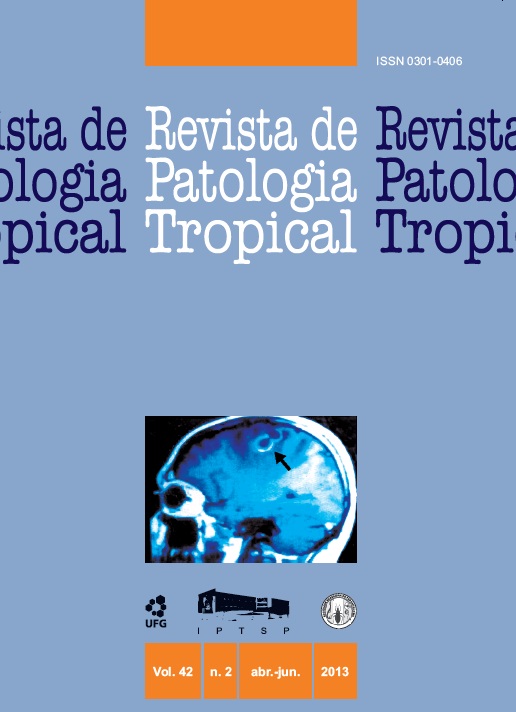Clinical and laboratory evaluation of hospitalized patients from the first oral transmitted urban outbreak of Chagas disease in Venezuela
DOI:
https://doi.org/10.5216/rpt.v42i2.25523Keywords:
Chagas disease, Oral transmission, Trypanosoma cruzi, Venezuela.Abstract
The largest orally transmitted microepidemic of Chagas disease (ChD) was detected in 2007 at a school in Caracas, Venezuela, affecting 103 people. This work describes the clinical and laboratory findings in 22 hospitalized patients. We investigated the presence of parasites and specific IgM and IgG antibodies by ELISA and Indirect Hemagglutination. Parasites were found in 5 individuals (22.7%) and anti-Trypanosoma cruzi antibodies in 86.3% (19/22). The admission diagnoses were dengue, urinary infection, histoplasmosis, polimyositis, autoimmune disease and mononucleosis. Long lasting daily fever was found in 18/22 (81.8%) and edema in 9 (40.9%) persons. 13/19 confirmed cases had cardiac involvement; 7 (31.8%) with pericardial effusion and one (4.5%) with atrial fibrillation, who needed cardioversion. Other findings were asthenia, myalgia, headache, precordial and abdominal pain. There were alterations in the values of troponin (8/11), ESR (8/14), PCR (14/16), LDH (8/9) and leukocytes (8/21). Three persons did not show anti-T. cruzi antibodies and one confirmed case died. Clinical detection of orally transmitted ChD is difficult because there is no association with the vector or parasite gateway and symptoms, are usually nonspecific. The acute illness can progress to severe disease when diagnosis and treatment are delayed.Downloads
Downloads
How to Cite
Issue
Section
License
The manuscript submission must be accompanied by a letter signed by all authors stating the full name and email address, confirming that the material has not been published or is under consideration for publication elsewhere, and agreeing to transfer copyright in all media and formats for Journal of Tropical Pathology. The authors will not be paid for published articles. They are solely responsible for the content of those articles, even if the Editor holds the right to adjust them to the norms of the journal.
The reviewers will not be paid for the peer review process.

